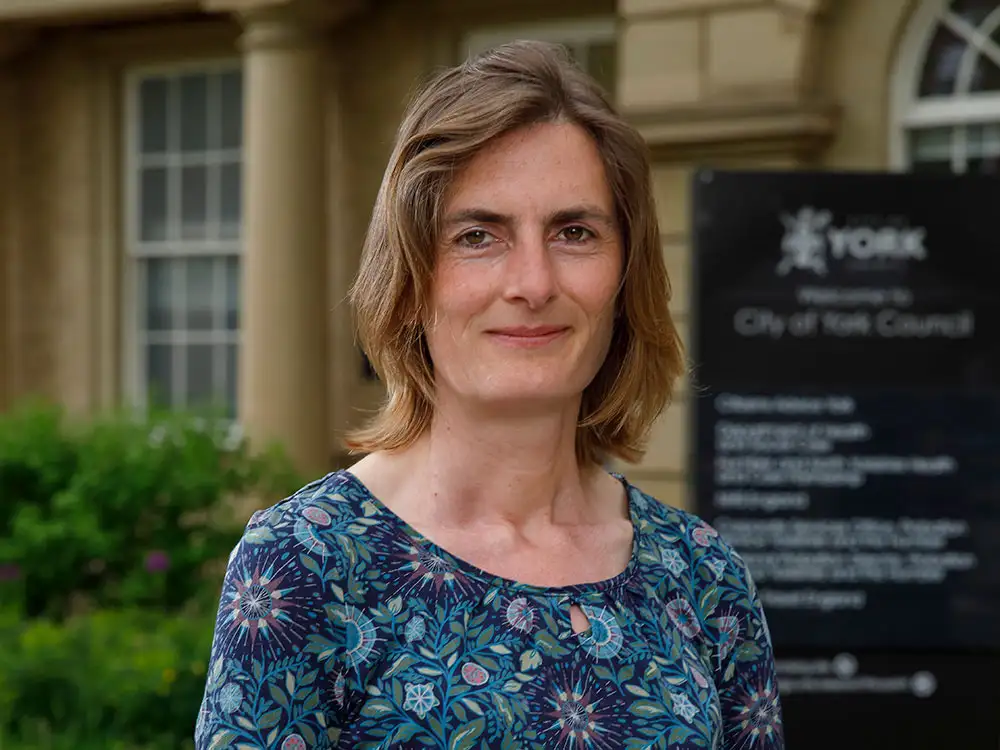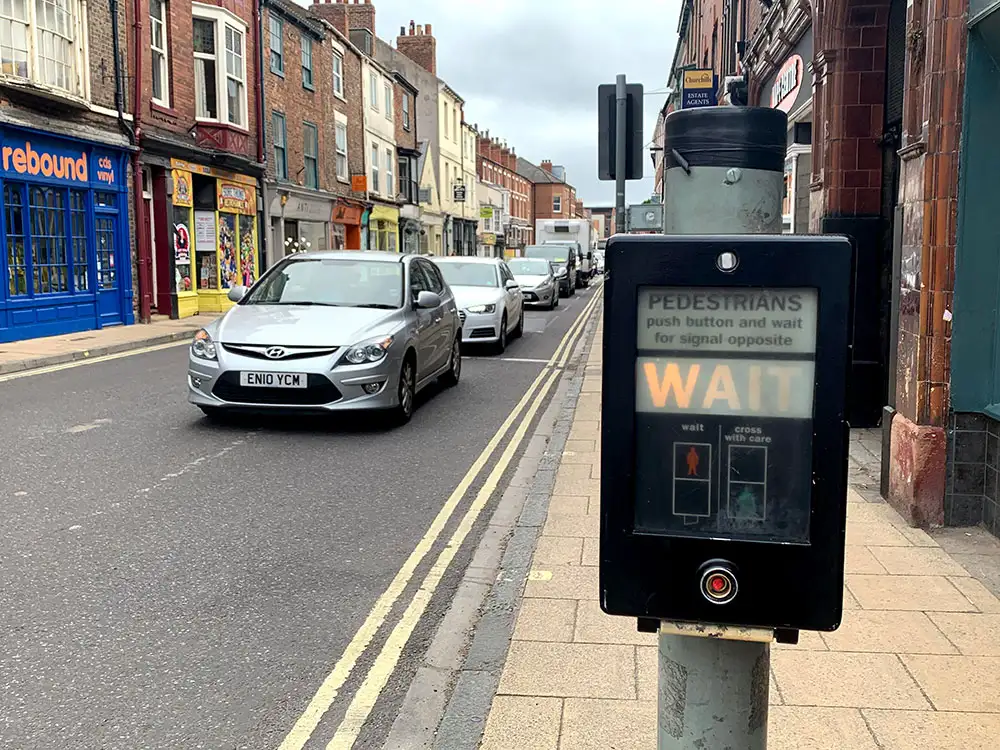A scheme which aims to reduce standing traffic in York’s most polluted street has been approved.
But queues in nearby roads will likely increase, the council’s transport lead says.
Trial changes to traffic light sequencing in Gillygate were approved yesterday (Thursday) and are set to last for a year.
City of York Council transport lead Cllr Kate Ravilious said action was needed for the sake of people’s health but she added teething problems were expected as drivers adjust to the changes.
The effects of the trial approved at the transport decision session will be monitored throughout 2025, including looking at its impact on emergency vehicles.
Pollution in Gillygate remains above legal limits despite falling from 2022 to 2023, according to the latest council air quality data.
The narrowness of the street combined with tall buildings either side of it creates a ‘canyon effect’ where emissions from traffic gather rather than scattering.
Respiratory problems
Local councillors, residents and campaigners welcomed plans for the trial at Thursday’s meeting.
Labour Guildhall ward councillors Coun Rachel Melly and Coun Dave Merrett both said pollution was causing health and respiratory problems for people living in the street.
But Gillygate resident John Gannon and York Civic Trust transport lead Tony May said the trial was welcome but a city-wide reduction in traffic was needed to tackle pollution long-term.
Liberal Democrat opposition transport spokesperson Coun Stephen Fenton said the findings of the trial would be welcome but its scope should be broadened to help make improvements elsewhere.
A council report stated findings from the trial would be used to help make changes traffic management in other parts of York prone to congestion on poor air quality.
But it added there was a risk that issues such as traffic moving to other roads such as Lord Mayor’s Walk and Clarence Street could offset the benefits to Gillygate.
The meeting also heard the trial was not budgeted for and existing council resources would be used with help from volunteers to avoid an estimated £100,000 cost.

Cllr Ravilious said financial constraints facing the council meant the trial had to be done in an economical way.
But she added doing nothing was not an option as one in 20 deaths in York are currently linked to poor air quality.
The executive member said: “Gillygate is the street that has the worst level of air quality in York.
“Although we can see that air quality has improved, it’s not enough to give us confidence that this is a consistent trend.
“Small changes to traffic signals is one thing we can do to address poor air quality, it should reduce the amount of standing traffic.
“It is likely that queuing will shift to surrounding streets but these don’t have the same canyon-like environment so emissions will disperse.
“We anticipate that there will be teething problems in the short-term, but the evidence is that in the longer term drivers will adjust to the changes.
“We will look at what holistic measures we can put in place next year because ultimately we need to reduce traffic, but this should hopefully make Gillygate a more pleasant place.”
